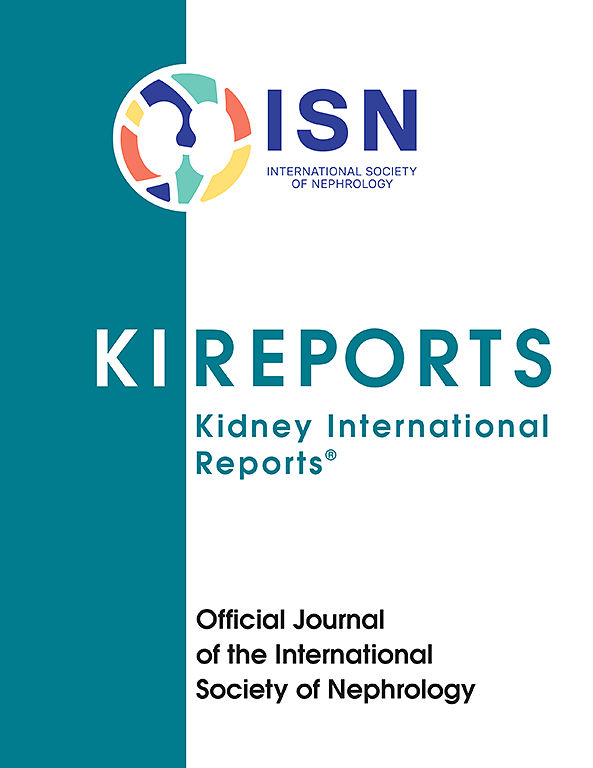Scoping Review of Kidney Patients and Providers Perspectives on Disaster Management
IF 5.7
2区 医学
Q1 UROLOGY & NEPHROLOGY
引用次数: 0
Abstract
Introduction
Patients with kidney disease are uniquely vulnerable to disasters and the need to understand stakeholder experiences to improve disaster preparedness has been highlighted. We aimed to explore the existing literature capturing patient and provider perspectives, identify research gaps, and develop research priorities in disaster management.
Methods
This was a scoping review of the empirical literature that has explored the lived experience and preparedness of patients, caregivers, or healthcare professionals during natural or human-caused disasters. A content analysis using an inductive approach was conducted.
Results
Of the 11,146 titles and abstracts screened, 22 met our inclusion criteria and emerged from Japan (n = 8), USA (n = 8), Syria (n = 2), Turkey (n = 2), China (n = 1), and Europe (n = 1, related to the Russian invasion of Ukraine). The outcomes examined were variable focusing on the following 4 aspects of disaster management: (i) identifying patient-level issues (preparedness, personal challenges, and psychosocial impact); (ii) damage assessment (infrastructure and equipment, personnel, and patient outcomes); (iii) response assessment (hemodialysis treatments delivered or missed, delivery of other kidney replacement therapies, and identifying practice gaps); and (iv) system assessment (examining capabilities and addressing surge capacity). The studies were at risk of survivor bias and most only used an investigator-designed survey for data collection. There was a dearth of evidence capturing the perspectives of caregivers, and pediatric and other vulnerable patients.
Conclusion
The literature examining patient and provider perspectives or experiences is scarce and at risk of bias. Methodological, population, outcome, process, and impact priorities are proposed to guide future research initiatives and generate evidence to inform context and disaster-specific relief efforts.

肾病患者和提供者在灾害管理方面的观点的范围综述
肾病患者特别容易受到灾害的影响,因此需要了解利益攸关方的经验,以改善备灾工作。我们的目的是探索现有的文献,从患者和提供者的角度,确定研究差距,并制定灾害管理方面的研究重点。方法:这是对经验文献的范围审查,这些文献探讨了患者,护理人员或医疗保健专业人员在自然或人为灾害期间的生活经验和准备。采用归纳方法进行了内容分析。结果在筛选的11146篇标题和摘要中,22篇符合我们的纳入标准,分别来自日本(n = 8)、美国(n = 8)、叙利亚(n = 2)、土耳其(n = 2)、中国(n = 1)和欧洲(n = 1,与俄罗斯入侵乌克兰有关)。检查的结果是可变的,侧重于灾害管理的以下4个方面:(i)确定患者层面的问题(准备、个人挑战和心理社会影响);(ii)损害评估(基础设施和设备、人员和患者结果);(iii)疗效评估(提供或错过血液透析治疗,提供其他肾脏替代疗法,并确定实践差距);(iv)系统评估(检查能力和处理激增能力)。这些研究存在幸存者偏倚的风险,而且大多数研究只使用调查者设计的调查来收集数据。从护理人员、儿科和其他弱势患者的角度来看,缺乏证据。结论研究患者和提供者观点或经验的文献很少,且存在偏倚风险。提出了方法、人口、结果、过程和影响优先事项,以指导未来的研究举措,并产生证据,为背景和具体的救灾工作提供信息。
本文章由计算机程序翻译,如有差异,请以英文原文为准。
求助全文
约1分钟内获得全文
求助全文
来源期刊

Kidney International Reports
Medicine-Nephrology
CiteScore
7.70
自引率
3.30%
发文量
1578
审稿时长
8 weeks
期刊介绍:
Kidney International Reports, an official journal of the International Society of Nephrology, is a peer-reviewed, open access journal devoted to the publication of leading research and developments related to kidney disease. With the primary aim of contributing to improved care of patients with kidney disease, the journal will publish original clinical and select translational articles and educational content related to the pathogenesis, evaluation and management of acute and chronic kidney disease, end stage renal disease (including transplantation), acid-base, fluid and electrolyte disturbances and hypertension. Of particular interest are submissions related to clinical trials, epidemiology, systematic reviews (including meta-analyses) and outcomes research. The journal will also provide a platform for wider dissemination of national and regional guidelines as well as consensus meeting reports.
 求助内容:
求助内容: 应助结果提醒方式:
应助结果提醒方式:


